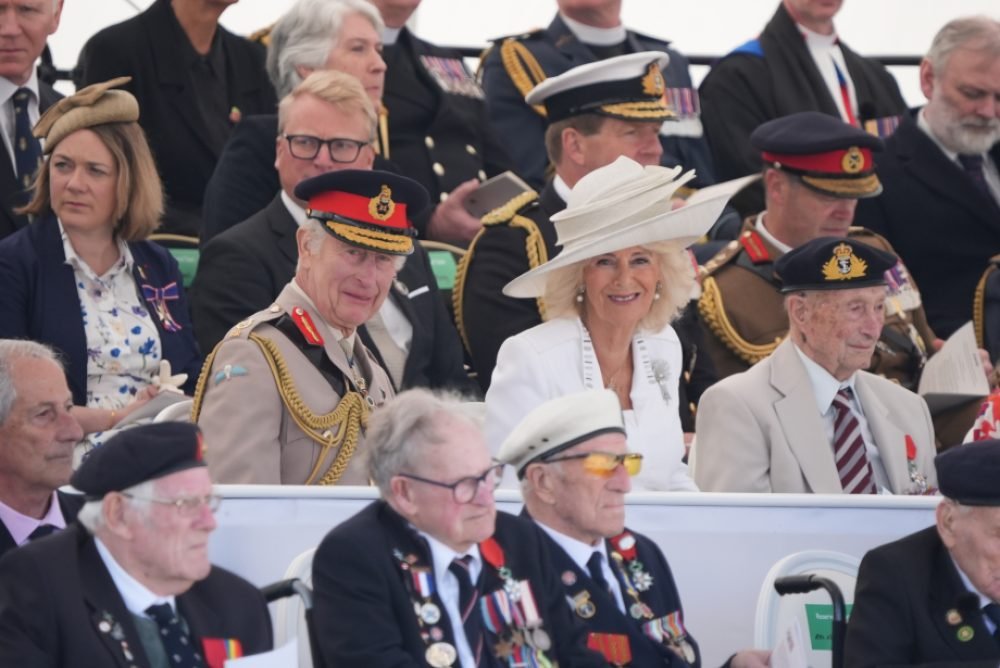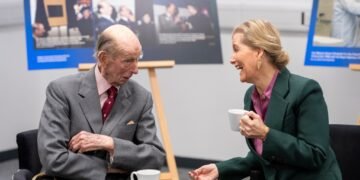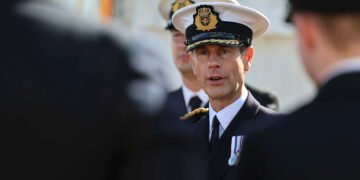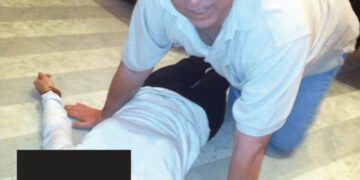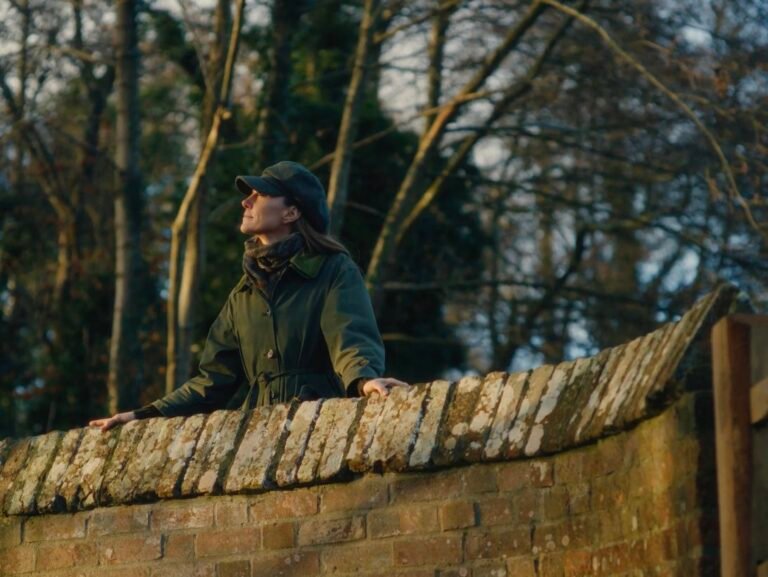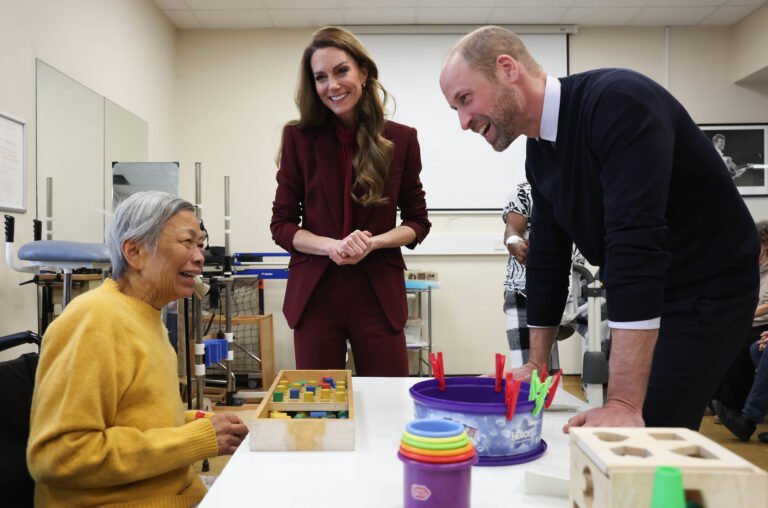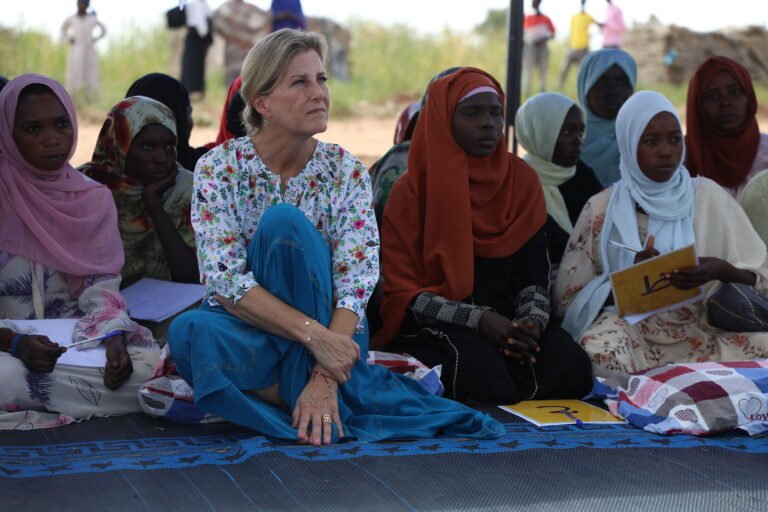Continuing to mark the 80th anniversary of the D-Day landings, The King and Queen visited Ver-sur-Mer, Normandy, for a national event at the beachfront British Normandy Memorial.
The visit was the first time His Majesty has been overseas since he made the announcement about his cancer diagnosis earlier this year.
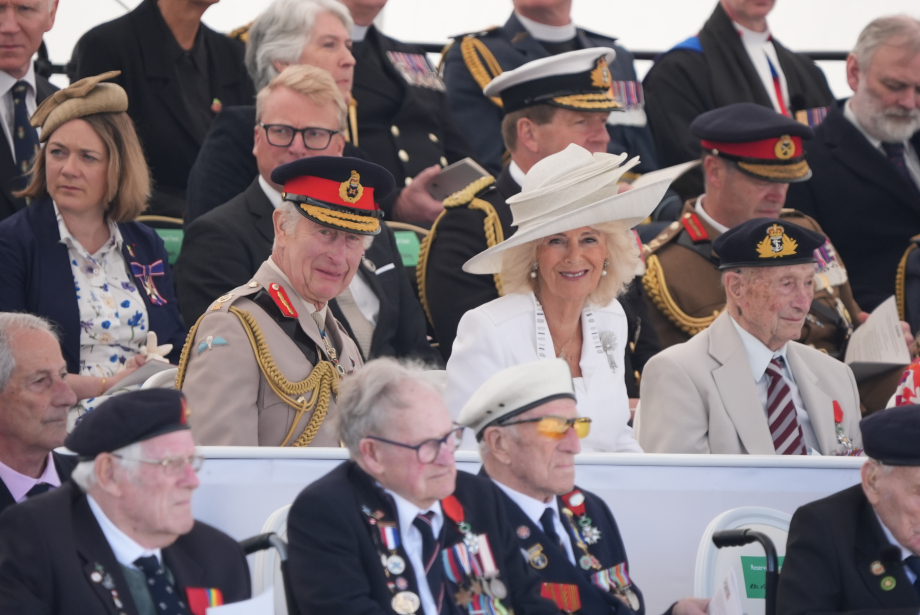
Thursday’s event at the British Normandy Memorial was the first time this new memorial has been at the heart of major anniversary commemorations. Inaugurated by President of France Emmanuel Macron and then British Prime Minister Theresa May on 6th June 2019 during events to mark the 75th anniversary of D-Day, it is the only memorial in Normandy which lists the names of the 22,442 people who died under British command on D-Day and during the Battle of Normandy.
For the engagement, The King and Queen were accompanied by the French President and First Lady, as they joined veterans and their families to give thanks for the success of the campaign, but also remember the fallen.

Normandy was the location of the largest seaborne invasion in history, marking a turning point in the Second World War, fighting back against the Nazis in occupied France.
Charles opened his speech by stating ‘fortunate we were, and the entire free world, that a generation of men and women in the United Kingdom and other Allied nations did not flinch when the moment came to face that test’.
The Armed Forces carried out their duty on 6th June 1944 with ‘a humbling sense of resolve and determination: qualities so characteristic of that remarkable wartime generation’, according to The King.
Charles noted that the anniversary of D-Day allows us to remember all those who sacrificed their lives ‘with the most profound sense of gratitude’ as well as the veterans who are still with us today. But he added that we must ‘recall the lesson that comes to us, again and again, across the decades: free nations must stand together to oppose tyranny’.
Recalling how he has had ‘the great privilege of attending seven D-Day commemorations in Normandy’ and met ‘many distinguished veterans’, The King stated how he ‘shall never forget the haunting sights and sounds of thousands of be-medalled figures proudly marching past into a French sunset on these beaches’. Our ability to hear first-hand the stories from D-Day veterans shrinks, however, and it should become ‘our obligation to remember them, what they stood for and what they achieved for us all can never diminish’.

‘That is why I am so proud that we have a permanent National Memorial in Normandy, by which to remember the more than 22,000 service personnel in British units who gave their lives during the D-Day landings and the Battle of Normandy.
‘It was built at the suggestion of a veteran, George Batts. He is sadly no longer with us, but lived to see it built and explained on the day it was opened why it means so much: “We left a lot of mates behind and now I know they will never be forgotten”.’
His Majesty explained how the memorial in Normandy is ‘a special homage’ to the greatest tragedy of 6th June 1944 – ‘the unimaginable numbers of French civilians who died in this joint battle, for freedom, as the Allies sealed off North-West France to ensure a final victory’.
He added how we must never forget to pay tribute to their ‘unbelievable courage and sacrifice of the men and women of the French Resistance, and many ordinary people, who provided vital intelligence, cut off supplies and communications, and laid critical ambushes’.
During the address, the Monarch recalled his grandfather’s 1944 D-Day speech by saying the united soldiers from more than 30 different nations and many faiths, who names are inscribed on the walls and pillars of the memorial, ‘fought for ‘a world in which goodness and honour may be the foundation of the life of men in every land’.
His Majesty concluded his speech by promising to the remaining veterans and their families, that ‘we will strive to live by their example; let us pray such sacrifice need never be made again; and let us commit to carrying forward their resounding message of courage and resilience in the pursuit of freedom, tempered by the duty of responsibilities to others, for the benefit of younger generations and those yet unborn. Our gratitude is unfailing and our admiration eternal’.
After The King gave a speech, His Majesty and The President laid wreaths, with The Queen and First Lady laying flowers. The group then went on to meet veterans, with one veteran giving The Queen a white rose as a mark of respect.

The Prince of Wales was also in Normandy to attend a number of events. First he was joining the Canadian commemorative ceremony at the Juno Beach Centre, Courseulles-sur-Mer, hosted by the Government of Canada, with Canadian D-Day and Second World War Veterans, as well as Canadian Armed Forces personnel, cadets, and wider youth representatives at the event.
Speaking at the event, William said he was ‘honoured’ to ‘commemorate the bravery and sacrifice of the Canadian troops 80 years ago on June the 6th 1944 as part of the150,000 Allied troops that landed or parachuted into Normandy 14,000 were from Canada’.
Marking the 80th anniversary of D-Day, honouring the pivotal moment that changed the course of history.
Remembering those who served and reflecting on the enduring impact they made to our world. #DDay80 pic.twitter.com/5kC3dok9sA
— The Prince and Princess of Wales (@KensingtonRoyal) June 6, 2024
He added: ‘Far from home they stormed these very sand dunes behind me, shoulder to shoulder with thousands of British troops. Standing here today in peaceful silence, it is almost impossible to grasp the courage it would have taken to run into the fury of battle that day.
‘All of you demonstrated heroism, and determination, that ensured fascism was conquered. The commitment to service displayed by Canadian troops is a great testament to the strength of the people of Canada.’
William highlighted the relationship between Canada and the UK and how the two countries continue to stand side by side, like in 1944, before concluding that the two countries are ‘just as strong together, 80 years later. Ensuring the memory of those who fought for freedom lives on is why we’ve come together again today – to say thank you’.
The Prince then went on to attend the international commemorative ceremony at Omaha Beach, Saint Laurent sur Mer, where he joined over 25 Heads of State and veterans from around the world in marking the historic anniversary.
Back in the UK, other members of the Royal Family were attending events that commemorated the landings.
At the National Memorial Arboretum in Staffordshire, The Duke and Duchess of Edinburgh were part of the congregation, alongside veterans and their families, at the Royal British Legion’s Service of Remembrance.
The Duke and Duchess of Gloucester, meanwhile, attended ‘D-Day 80: Remembering the Normandy Landings’, for an evening of music-led, multi-generational storytelling, reflecting on the Second World War at the Royal Albert Hall.

